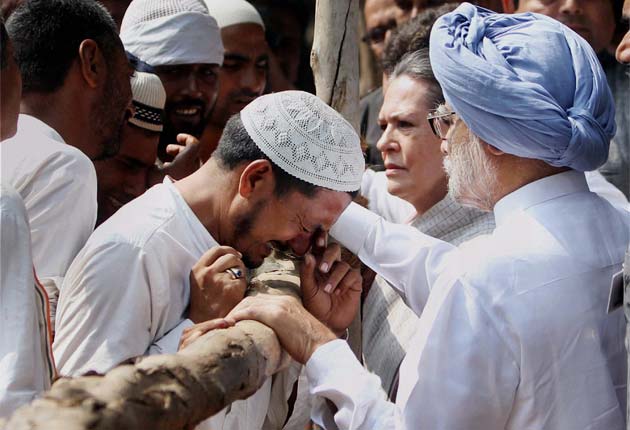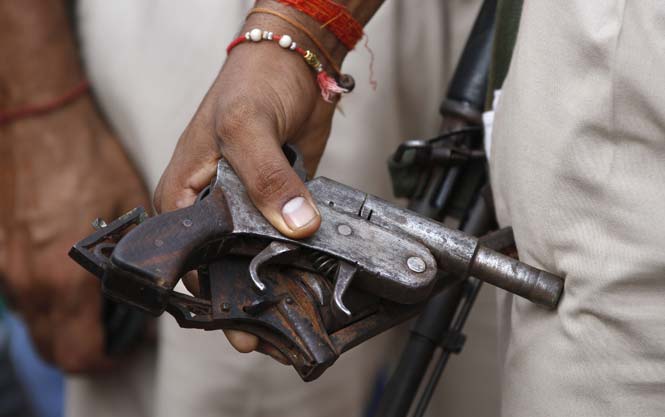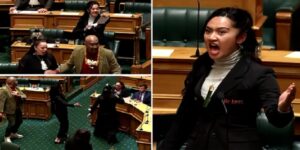The Rise of Hindu Anger across India has nothing to do with ‘Modi’, the RSS/VHP or the BJP or some imaginary Hindutva Fascism Phantom but the root cause is Indian ‘Secularism’ itself.And it will go out of control if the Indian ‘secular’ state continues with its anti Hindu policies. Muzaffarnagar is just one of many incidents that have taken place in India over the years but the Indian secular state still doesn’t get the message unfortunately but still continues to downplay Hindu grievances by portraying them as Hindu extremism thus opening Pandoras Box.
Secularism (the separation of religion and state) is very good and I support it. But in India what is passed off as “secularism” actually goes totally against what secularism actually means.
For example, in all genuinely secular countries there is one law of the land, which applies no matter what religion a person professes (uniform civil law code). This is the very essence of secularism; without it there is no secularism.
But in India, not one political party which trumpets its secularism wants a uniform civil law code; they want to keep the current situation in which there are major differences in civil law for the different religious communities. And that is despite the fact that Article 44 of the Constitution says:
“The State shall endeavour to secure for the citizens a uniform civil code throughout the territory of India.”
Anyone who talks of the need or desirability of a common civil law code is called communal. Such is secularism in India! With the Muzzafarnagar riots, we see some glaring examples of the perverse nature of what passes of as secularism in India.
 Rahul, Sonia and MMS’s visits to Muzaffarnagar
Rahul, Sonia and MMS’s visits to Muzaffarnagar
The Times of India reports that Jats in Muzzarnagar are upset that the MMS and Sonia have only visited Muslim relief camps. The Jats should know that this is quite normal, and should not express any surprise. After all, how often do you find Congress leaders going to visit refugee camps of displaced Kashmiri Hindus who have not been rehabilitated for over 20 years?
I really do feel for any innocent Muslims killed, hurt or displaced by riots. But why is it that violence against Hindus does not upset the conscience of the great Indian “secularists”? Surely this is a recipe through which even a historically tolerant live and let live type of people (Hindus) are being driven to have to politically assert themselves just to make sure our lives are not made cheaper than that of others?
India Today’s “Riot for Votes” coverage
 A sting operation from India Today shows that police officers in Muzaffarnagar admit that they released prime suspects believed to police have beaten to death cousins Sachin and Gaurav.
A sting operation from India Today shows that police officers in Muzaffarnagar admit that they released prime suspects believed to police have beaten to death cousins Sachin and Gaurav.
They openly admit that they did this due to “pressure-from-above” (i.e. Samajwadi Party), and that this sent a dangerous message to the “other community” that the police is not willing or able to intervene.
One of the police officers openly says “We’ve got to do what they tell us, how else can we put food on our children’s plate?” Furthermore, two police officers involved in arresting the suspected killers were transferred.
The police officers interviewed unanimously admit that it was vote bank politics that led them to release the suspects.
 India Today took the logic further and assert that the reason why the Samajwadi Party ordered the police inaction is because they wanted riots, as it would help them do better in the coming elections. The idea that the Samajwadi Party wanted riots may or may not be true; it takes a leap to go from having proof that they ordered the police to release suspects to saying that this means that they wanted communal riots.
India Today took the logic further and assert that the reason why the Samajwadi Party ordered the police inaction is because they wanted riots, as it would help them do better in the coming elections. The idea that the Samajwadi Party wanted riots may or may not be true; it takes a leap to go from having proof that they ordered the police to release suspects to saying that this means that they wanted communal riots.
I’m dubious that the Samajwadi Party wanted riots; I do not think they will do particularly well out of this and I think they know it. My own hypothesis is that the SP just doesn’t want to arrest or take action against Muslims in low level incidents in which Hindus are attacked, as it is making arrests in these incidents that that (they feel) carried the risk of alienating their vote bank. The riot ensued due to a miscalculation by them and chances are that it will backfire.
To find out what is really the thinking behind the SP clipping the police of their powers in dealing with goons from a “certain community” in such incidents, it would be very useful to analyze the nature of the 451 “communal incidents” which have reportedly taken place this year in Uttar Pradesh, and to find out what action the police took, and whether they had similar experiences and views as the police officers interviewed in Muzaffarnagar. We then need to know whether the police officers felt that they were freer to fight such incidents when working under the previous political regime in UP (BSP) in which there were a lot less communal clashes.






























